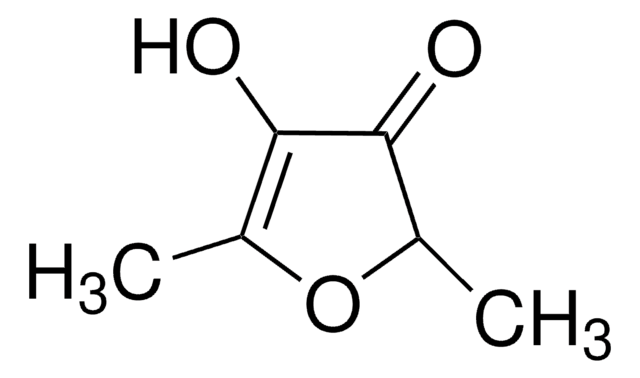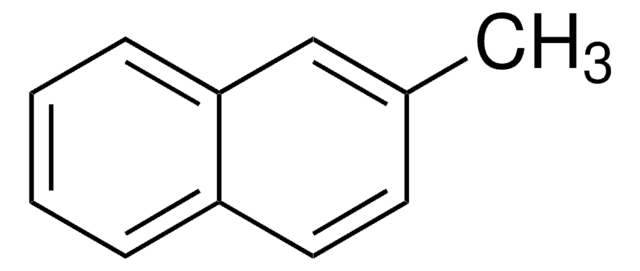44869
4-Hydroxy-2,5-dimethyl-3(2H)-furanone
analytical standard
Synonym(s):
2,5-Dimethyl-4-hydroxy-3(2H)-furanone, Furaneol, Strawberry furanone
About This Item
Recommended Products
grade
analytical standard
Quality Level
Assay
≥97.0% (GC)
shelf life
limited shelf life, expiry date on the label
technique(s)
HPLC: suitable
gas chromatography (GC): suitable
mp
73-77 °C (lit.)
application(s)
cleaning products
cosmetics
flavors and fragrances
food and beverages
personal care
format
neat
storage temp.
2-8°C
SMILES string
CC1OC(C)=C(O)C1=O
InChI
1S/C6H8O3/c1-3-5(7)6(8)4(2)9-3/h3,8H,1-2H3
InChI key
INAXVXBDKKUCGI-UHFFFAOYSA-N
Looking for similar products? Visit Product Comparison Guide
Application
Packaging
Caution
Recommended products
Signal Word
Danger
Hazard Statements
Precautionary Statements
Hazard Classifications
Acute Tox. 4 Oral - Eye Dam. 1 - Skin Corr. 1B - Skin Sens. 1
Storage Class Code
8A - Combustible corrosive hazardous materials
WGK
WGK 1
Flash Point(F)
Not applicable
Flash Point(C)
Not applicable
Choose from one of the most recent versions:
Already Own This Product?
Find documentation for the products that you have recently purchased in the Document Library.
Our team of scientists has experience in all areas of research including Life Science, Material Science, Chemical Synthesis, Chromatography, Analytical and many others.
Contact Technical Service









